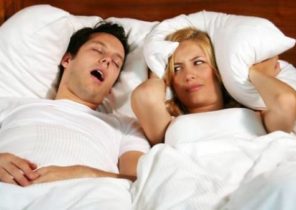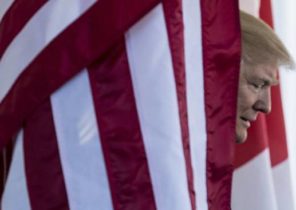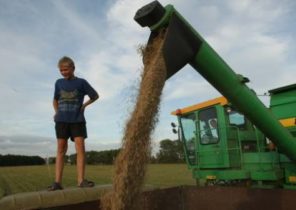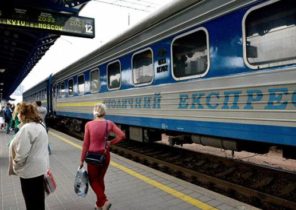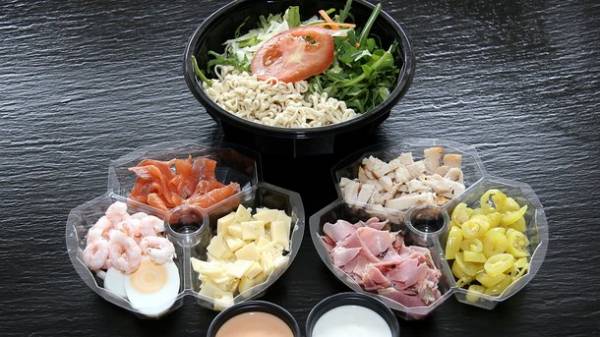
To sports benefit, you need to eat right. Even if you will be days away in the gym and continue to absorb the fast food, processed foods and other unwholesome food — a beautiful toned body you can not see! Moreover, an unbalanced diet combined with intense debilitating exercises can greatly harm your health. How to eat to get the maximum benefit from exercising and build muscle, we dealt with the fitness coach Anita Lutsenko.
THE PERFECT ATHLETE MODE
Regardless of whether you want to lose weight or build muscle, you need to use a certain amount of calories. Many people think that if you overload yourself in the gym and a little to eat, you can quickly get rid of extra pounds. But it is not so: the body requires energy to recover from workouts and, of course, the “building material” for muscle-building.
How many calories should you eat? The minimum daily caloric intake for an adult shall be 1500 kcal. If a person plays sports or works hard physically, he needs to consume at least 2000 kcal. And professional athletes preparing for competitions, manage to eat 4000 kcal a day!
With proper diet (Breakfast, lunch, snack, dinner) this averages out to 1500 calories. But if you exercise, calculate calories is necessary, otherwise the slimming effect will not, and muscles will begin to atrophy.
In addition to the surveillance of the caloric intake, it is also important to observe the rule last meal, namely dinner at least three hours before bedtime. To eat small portions as often as possible (ideally 4-5 times a day), properly distributing calories the meals. It should look like the following:
- Breakfast — 25% of the daily calorie intake.
- Lunch — 40% of daily calorie intake.
- Snack — 10% of daily calorie intake.
- Dinner — 25% of the daily calorie intake.
Depending on your cleanse you can also be the first Breakfast (for example, if you Wake up at 5 in the morning), lunch, afternoon tea and a light snack before bedtime (for example, a glass
low-fat yogurt).
THE PERFECT MENU: HOW TO MAKE
Right “sports menu” — the subject of a separate discussion. So, what you need to eat per day in active exercise, especially if you want to gain muscle mass?
Approximate daily diet should include the following products:
- 150-200 g of low-fat cottage cheese;
- serving of side dish — cereals (rice, buckwheat, oatmeal), pasta from durum wheat (very good to eat them immediately after training);
- 150-200 g of meat/poultry/fish;
- 1-2 eggs;
- 0,4—0,5 kg of raw vegetables (cabbage, cucumbers, tomatoes, carrots, onions, greens);
- fruits — you can eat in unlimited quantities, but only until 16:00.
As treats you can use honey and dark chocolate with a high cocoa content. To refuse it is necessary from a priori harmful products — fast food, canned, chips, crackers, semi-sweet sodas: they will drive all your workouts. It is also important to use the white loaves and sweet pastries, cheap pasta, pastries and cakes. And another thing: try to drink tea and coffee without sugar. In an extreme case, replace it with honey.
GOING FOR A WORKOUT: CARBS BEFORE, PROTEIN AFTER
- TO SATURATE THE BODY WITH CARBOHYDRATES
In any case, do not exercise on an empty stomach, otherwise you will simply drain your body. You also can not eat directly before exercise — a perfect hearty meal for 1-1. 5 hours prior to going to the gym. It is best to eat? For productive physical activity the body needs energy, so you need to get enough carbohydrates and then be able to give it all you got! The caloric content of this meal should be around 400 calories: it may be 100 g of any cereal porridge, 200 g of fresh or steamed vegetables and 50 grams of protein (cheese, egg, meat, beans). 30-40 minutes before going to the gym, you can make a light meal, if there is a hunger to drink yogurt or eat some oatmeal with fruit and honey.
- DURING: MONITOR WATER BALANCE
To eat while sports experts is strongly recommended. The exception may be only in the case if long-duration intense exercise — for example, many hours of Cycling. Then, of course, on the way you can eat, but it should be only healthy foods (a good snack is nuts). But if you are in the gym or training lasts 1-2 hours, better refrain from undertaking snacking and carefully watch out for the water balance.
Lack of fluid in the body during exercise leads to an overload of the heart, causing pressure peaks and can lead to dehydration. That this did not happen, drink plenty of fluids. For each person the norm is different, so follow the principle “the more you sweat, the more you drink”. In an average hour of exercise you need to drink 0,5—0,7 L. most Effective not to drink at a gulp, and to make a few SIPS, for example, between sets of different exercises.
- AFTER: NECESSARY “BUILDING MATERIAL”
After exercise be sure to eat. And meals must be arranged so that between the training and subsequent food intake was not a big break (over 45 minutes). What kind of food the body needs after physical activity? First of all, protein: it is a “building block” for the muscles, help build and restore cells and tissues.
Products should be chosen so that 100 g of protein, 50 grams carbohydrates and 200 g of fresh or steamed vegetables. But the main thing — must be low fat! It is equally important to consider the intensity of your workouts and calories burned: from this we can calculate how many calories to eat with food. For example, swimming burns 630 calories per hour doing low intensity aerobics — 400 calories in an hour of weight training you can lose from 270 to 450 calories per hour while Cycling (16 km/h) will help to burn 385 calories.

